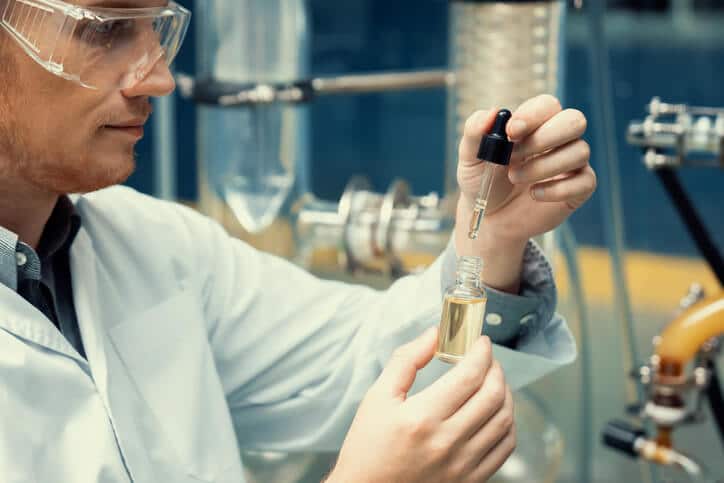The Canadian cannabis industry offers exciting opportunities for those with the proper knowledge and skills. If you’re considering a career in this burgeoning field, enrolling in AAPS cannabis industry training can provide a significant edge in cannabis product processing, from cultivation to quality control.
This blog post highlights the steps involved in cannabis product processing and provides a closer look at what you can learn about cannabis product processing in our courses.
Learn the Basics of Cannabis Processing in Our Cannabis Industry Training
Enrolling in our cannabis industry training can give you insights into the various processing stages, ensuring you are well-prepared to work in this dynamic industry. Cannabis processing involves transforming raw cannabis plants into usable products such as oils, edibles, and concentrates. This process includes several critical steps, each requiring a thorough understanding of the plant’s properties and the desired end product.
Cultivation and Harvesting and Drying and Curing
The journey of cannabis products begins with cultivation. Learning about the cultivation process is essential, as the quality of the raw material significantly impacts the final product. Students will study different growing techniques, the importance of strain selection, and the factors that affect plant growth, such as light, water, and nutrients.
Harvesting methods are also crucial, and understanding the best practices for timing and technique ensures the preservation of the plant’s valuable compounds. Once harvested, cannabis plants must be dried and cured to prepare them for further processing.
The processing stage is critical for enhancing the potency, flavour, and overall quality of the cannabis. In cannabis courses, you will learn about the optimal conditions for drying and curing, including temperature, humidity, and time considerations. Properly dried and cured cannabis is essential for producing high-quality products.

Best practices explored in our cannabis course preserve the plant’s valuable compounds.
Extraction Methods and Refinement
Extraction involves isolating the desired compounds from the plant material. There are several extraction methods, each with its advantages and challenges. Notable extraction techniques include:
- Solvent-based extraction: Using solvents such as ethanol or CO2 to extract cannabinoids and terpenes. This method is popular for the mass production of high-purity concentrates.
- Solventless extraction: Techniques such as rosin pressing or ice water extraction do not use solvents and are favoured for their natural approach.
Students learn about the equipment used in extraction, the science behind each method, and the importance of safety and compliance in the extraction process. After extraction, the raw cannabis extract often requires further refinement to remove impurities and unwanted materials. This step is crucial for producing high-quality, safe, and effective cannabis products.
Various refinement techniques exist, such as winterization, filtration, and distillation. Understanding these processes helps ensure that the final product meets industry standards and consumer expectations.

Students in our cannabis course will learn about different extraction methods.
Product Formulation and Development and Quality Control and Testing
Exploring cannabis products like edibles and tinctures starts with a solid understanding of product development. Complying with regulatory requirements for labeling and packaging is essential for ensuring safety and compliance.
Quality control and testing are vital for product safety, and our course offers hands-on experience with various methods to assess the potency, purity, and safety of cannabis products.
Students will learn about Good Production Practices (GPP), and quality assurance management systems (QMS), which play a crucial role in maintaining high standards in the cannabis industry.
Edible production and extraction methods are also covered, ensuring comprehensive knowledge. Our cannabis course equips students with the knowledge and skills to excel in product formulation, development, quality control, and testing.

Our cannabis course equips students with the knowledge and skills to excel in the cannabis industry.
Industry Regulations and Compliance
The cannabis industry is highly regulated, with strict guidelines governing every aspect of production and distribution. Our courses emphasize the importance of understanding and adhering to these regulations.
Students gain insight into the legal landscape of the cannabis industry, including licensing requirements, good production practices (GPP), and compliance with health and safety standards. This knowledge is vital for operating within the legal framework and ensuring the success of your career in the cannabis industry.
Do you want to pursue a cannabis career?
Contact AAPS for more information.




